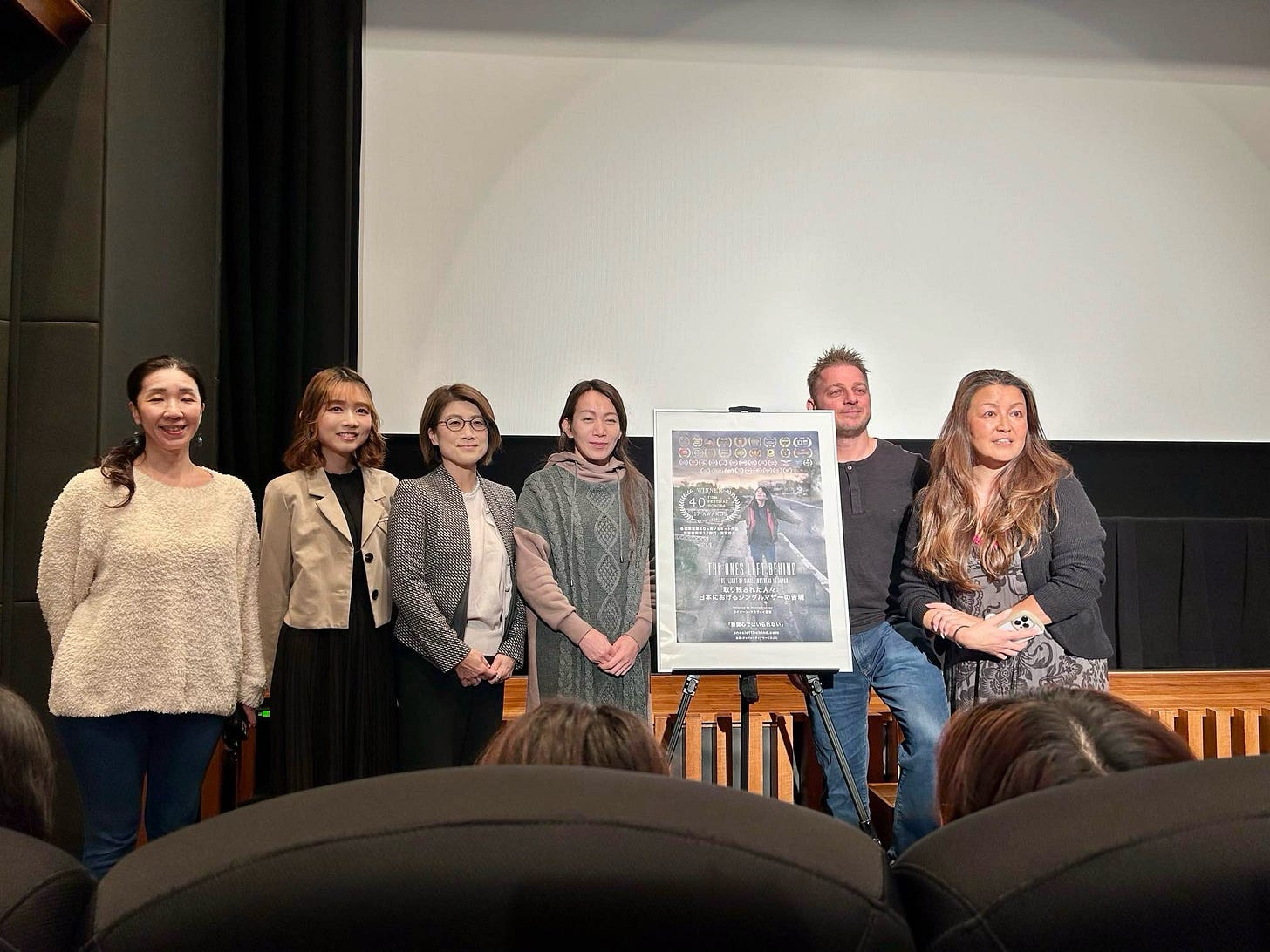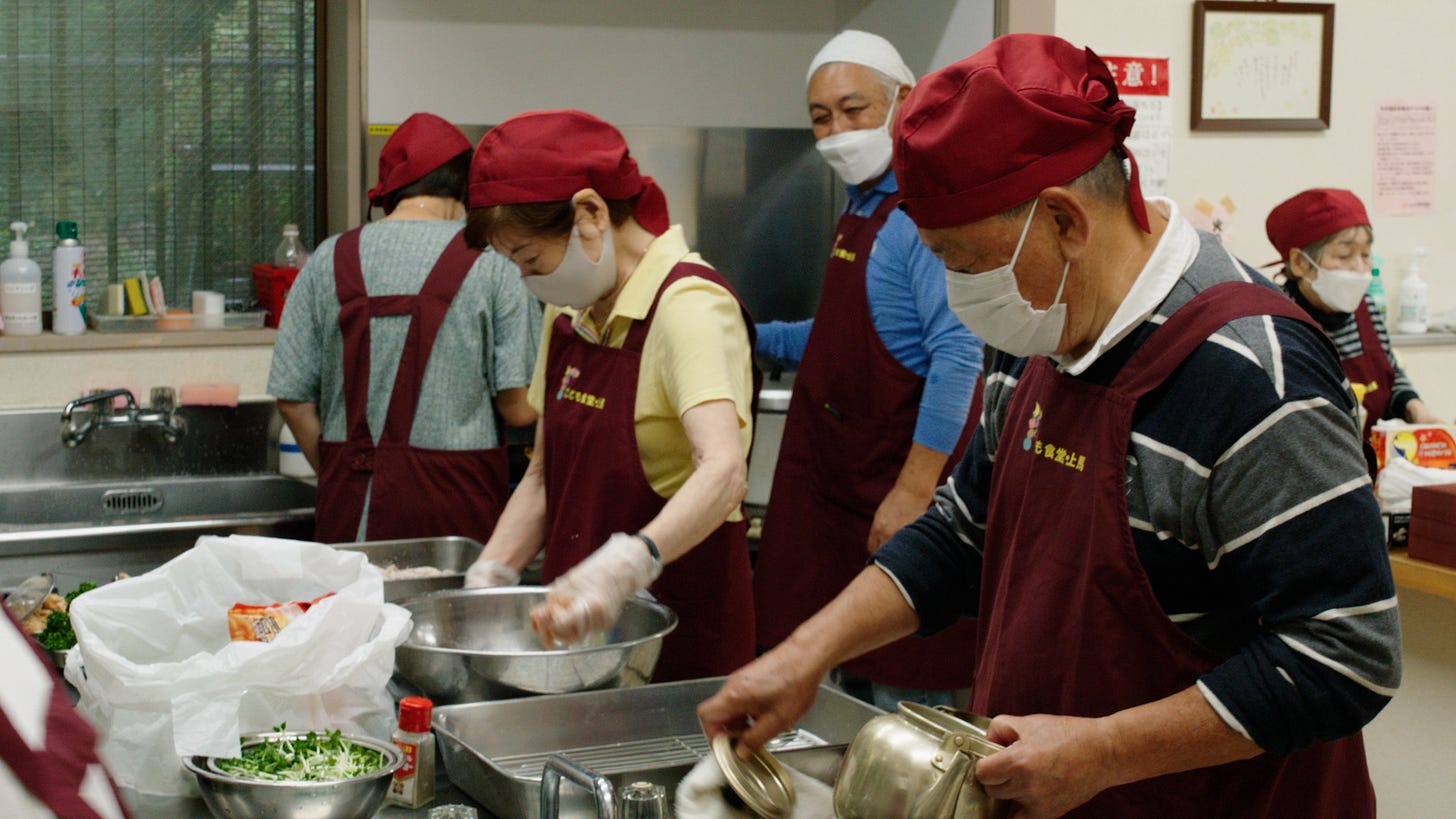Rejection is never easy. As a filmmaker, pouring your heart into a project and having it dismissed can be one of the most demoralising experiences ever, especially when you know that your film can help a lot of people. At talk events, people often ask if my journey with The Ones Left Behind: The Plight of Single Mothers in Japan was filled with moments that tested my resolve and I always say no. I think this demoralising experience is also one of the most valuable because without this experience, I would not have been able to add a new skill to my toolbox - that of a film distributor.
After completing The Ones Left Behind: The Plight of Single Mothers in Japan, I approached several domestic distribution companies, confident in the film’s potential to make a difference. What followed was a string of rejections. One company even called me all the way to their office in Shinjuku just to deliver a resounding NO in person. Others rejected me by email, stating that none of the cinemas they approached wanted to screen the film. It was hard not to feel disheartened and the message seemed clear—there was no room for my documentary alongside Hollywood movies and big budget Japanese films. Little Rionne McAvoy’s zero budget self made documentary didn’t belong on the big screen.
But I refused to give up. The story of Japan’s single mothers and child poverty issue needed to be told, and I knew there was an audience out there who would connect with it. Just look at how this lady reacted after she was asked directly after watching the documentary on the big screen:

Actually, the theme of rejection with this documentary has followed me for more than three years. When I first started, I contacted every single mother support group and NPO in the country including personal DM‘s to the most famous single mother advocate in the country. Those country wide spread emails were almost all ignored and the DMs were all read and ignored. I put it down to a combination of NPO’s being terribly underfunded with very little man power and the Japanese mentality of not wanting to really stand up and be the face of something. To be Japanese is to be in the background doing what you can. Thankfully, Mayumi Nishida from Heart Full Family did reply, she was the only one - and that’s how I started. She was ready to stand up and be part of something new.

Over the course of the interviews I came to know about children’s cafeterias, called kodomo shokudo in Japanese. They provide nutritious meals and a welcoming environment for children. There are 850 or so in Tokyo alone, an incredible number. I emailed over 300 of these cafeterias in late 2021 when I found out about them and I got only four replies. Out of those four, only one place said yes and they are in the documentary.
I must have emailed over 150 politicians about the film and only two replied. Any coincidence that those two are both females? How about the Japanese media? It took me two years to get proper domestic Japanese language media attention, and it came from me constantly emailing journalists asking for their help. Overseas media and English language domestic media were the complete opposite.
One criticism I sometimes hear of the documentary is that I interviewed three senior Caucasian men and that there were no Japanese female expert opinions. The truth is that I emailed quite a few Japanese female university professors who had all published papers on the single mother issue in Japan. Only one of them replied and she said she would only be interviewed if it was a written interview. For a documentary, you can see why this wasn’t very useful. The other emails again fell on deaf ears. Yanfei Zhou sensei, a Chinese national, appears in our film but it took me 6 months to get her on board, she is a very busy lady.
It wasn’t all gloom and doom. After a successful crowd funding campaign, I applied to over 100 international and domestic film festivals. 40 said yes, only three of those from Japan. We won 17 awards and had 23 other official selections. It was always my plan to keep the film out of the public eye for the first year, focusing only on film festivals because once your film is released to the general public, you are ineligible for film festivals and that means you cannot get the lovely laurels (the flower/leaf logos of the festivals) that are vital to a films success.
Before I keep going, here is another substack I wrote that you may be interested in.
Getting back to distribution, despite the theme of constant rejection from film distribution companies, I doubled down on my efforts, reaching out to cinemas directly, sharing the vision behind the film, and refusing to let those rejections define it’s future.
Last year, the documentary had a very successful two-week run at K’s Cinema in Shinjuku, an experience that fueled my determination. If 2024 was the breakthrough we needed in Tokyo, 2025 will be the breakthrough for the whole of Japan. This year, we are scheduled to screen in eight cinemas across Japan and I will not give up until that number is much more. It’s not about the money either as truth be told, there isn’t much money to be made in documentaries. It’s about getting the story out and into the hearts and minds of the public. We will make change, of this I have no doubt.
No filmmaker achieves success alone, and my journey with The Ones Left Behind: The Plight of Single Mothers in Japan is no exception. While I’ve faced my fair share of rejection, this story of resilience is also one of teamwork, support, and the power of community. A shout out LinkedIn, which has been crucial for me.
From the beginning, I’ve been fortunate to have incredible people by my side. From my wonderful producers to our crowdfunding campaign brought together individuals who believed in this film’s message and were willing to contribute financially to help bring it to life, I have been blessed. On social media, people shared posts, spread the word, and rallied others to support the cause.
To anyone chasing their dream, I want you to know that rejection is not the end. It is merely a step in the process. If you believe in the importance of what you are doing, just keep going!
Rionne McAvoy is the director of the award-winning documentary The One's Left Behind: The Plight of Single Mothers in Japan, showcasing his dedication to addressing pressing social issues. A committed documentary filmmaker and professional wrestler, he explores critical themes with passion and insight. Additionally, he has a keen interest in post-World War II Japan, particularly the intricate connections between politicians and gangsters during that era. Known in the wrestling ring as Rionne Fujiwara, he brings the same determination and storytelling prowess from his wrestling persona to his filmmaking endeavors.











Beautifully written. An inspiration to anyone using their art to get something out there.